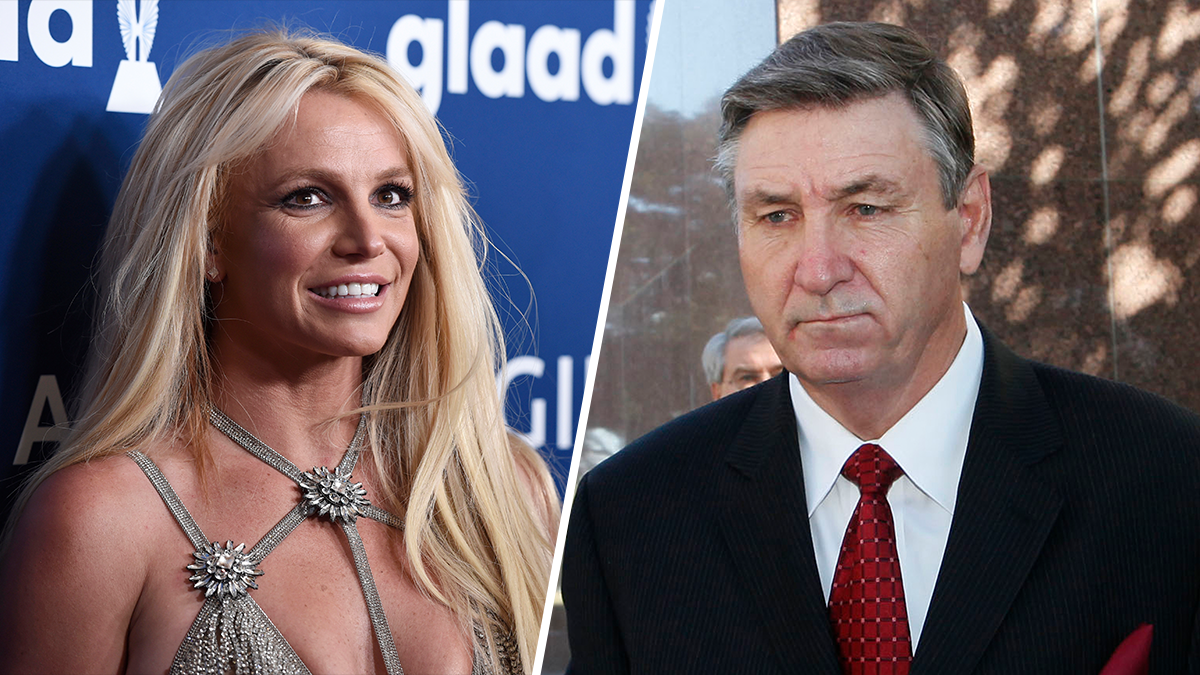Britney Spears and her attorney successfully drove her father from the conservatorship that has run the singer's life and controlled her money, but they say they are not done scrutinizing him and the actions he took over the past 13 years.
After a Los Angeles Superior Court judge suspended James Spears as conservator, attorney Mathew Rosengart said his legal team would perform a "top-to-bottom" examination of his behavior now that they have access to years of books and records. Some allegations, he added, could bring a “hard look” from law enforcement.
“Jamie Spears and others are going to face even more serious ramifications for his misconduct,” Rosengart said Wednesday outside court.
But legal acts may pose problems too. Experts say some of the allegations that have emerged have exposed the shortcomings of the conservatorship system, which gives conservators vast control over people deemed mentally incapable of making major life decisions, as Britney Spears was found to be in 2008.
Get top local stories in DFW delivered to you every morning. >Sign up for NBC DFW's News Headlines newsletter.
“There are safeguards in place,” said Sarah Wentz, a probate attorney who works on many conservatorship cases. “I think the failings in this case show us where they can be manipulated. I am disappointed in our system."
More Britney Spears Coverage
Few of the allegations against James Spears, which range from mismanagement of funds to fierce control of his daughter's every move, have been publicly proven. His attorneys say they range from unsubstantiated to impossible, and that he only ever acted in her best interest.
Judge Brenda Penny was legally allowed to suspend the elder Spears at her discretion and held no fact-finding hearing before ousting him, citing only the “toxic environment” that he created around his daughter.
His suspension could now allow evidence to be gathered, however.
“They needed to have him out of the way,” Wentz said. “He has too direct a conflict.”
Rosengart argued in court that James Spears had “reaped millions of dollars” from the conservatorship, and said in court filings that in recent years he has been spending her money excessively on attorneys and strategists whose central goal was to bolster his reputation and maintain the conservatorship at all costs.
“She’s the breadwinner. Everything belongs to her,” said Richard Kaplan, a criminal attorney who specializes in defending white-collar clients. “And if there was mismanagement, that’s ripe for investigation.”
Neither Kaplan nor Wentz is involved in the Spears case.
James Spears' attorneys argued that all his actions were subject to the scrutiny of the court, which closely examines required quarterly financial reports and frequently investigates the moves of conservators.
That isn't necessarily sufficient, however.
“He can’t just use that as a defense,” Wentz said. “He wasn’t court appointed to oppress her or abuse her or torment her.”
Required court monitoring hasn't stopped others from taking advantage of conservatorships and facing criminal investigation.
“It’s not uncommon that a conservator mismanages money and profits off of that,” Kaplan said. “That’s why probate courts have to look so closely at these things.”
Rosengart also said James Spears had crossed “unfathomable” lines by engaging in illegal surveillance of his daughter, including communications with her children, her boyfriend and her lawyer, as reported in “Controlling Britney Spears,” a recent documentary from The New York Times and the FX network.
James Spears' lawyer, Vivian Thoreen, dismissed those allegations in court as “rhetoric from a TV show” that could be dispensed with quickly on closer investigation.
By himself or with a partner, James Spears was the overseer of both his daughter's life decisions and finances from 2008 to 2019, when he gave up the role of so-called conservator of her person while continuing to control her finances alone.
His attorneys said that means his daughter's complaints about her health care and controls on her relationships are not her father’s responsibility at all but that of Jodi Montgomery, a court-appointed professional who serves as conservator of her person. Britney Spears aired those complaints in a pair of passionate speeches to the court over the summer.
Wentz said beyond the surveillance issue, she is even more troubled by a 2016 document leaked to the Times documentary makers in which Britney Spears told a court investigator she wanted an end to the conservatorship, which was “based in a lot of fear” and enabled her father's “oppressive” control of every aspect of her life.
There were no apparent changes made.
“The fact that the court did nothing about that is appalling,” Wentz said. “I have been asked by people about reform in the conservatorship system, and I say, ‘How about just following the rules?’ They asked the court to end things, and it seemed like nobody wanted this to end. Why?"
She suggested that states could implement a mandatory reporting requirement for conservatorships that triggers bigger investigations of the sort that happen when a teacher or therapist hears of possible child abuse.
In the weeks leading up to Wednesday’s hearing, James Spears reversed course and petitioned to have the conservatorship terminated.
Judge Penny rejected that petition in favor of Rosengart’s plan, which was to first suspend James Spears before moving to end the conservatorship entirely, possibly by the next hearing in November.
Thoreen gave a broad defense of her client in a statement to The Associated Press on Thursday, saying James Spears' ouster was “a loss” for Britney Spears. She said he loves his daughter unconditionally and has tried for 13 years “to do what is in her best interests, whether as a conservator or her father.”
Thoreen said Spears' love for his daughter has “meant biting his tongue and not responding to all the false, speculative and unsubstantiated attacks.”


